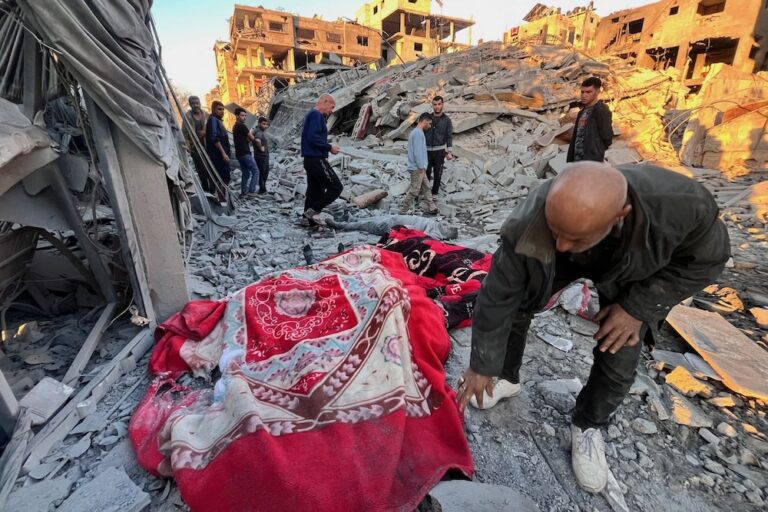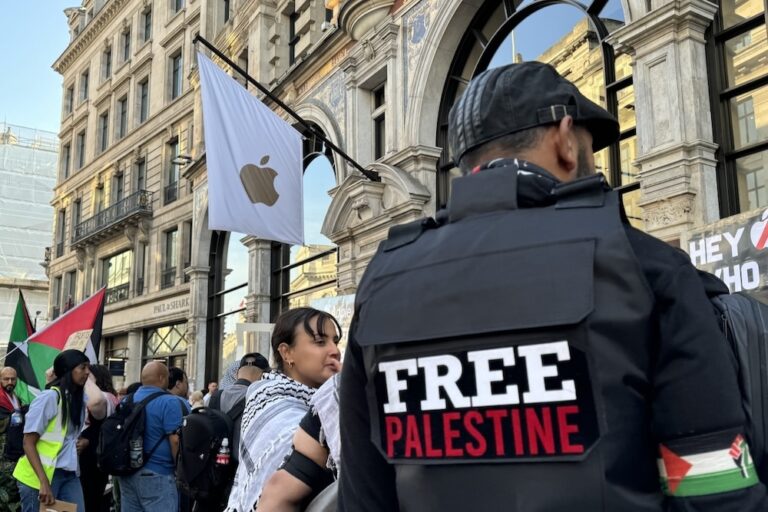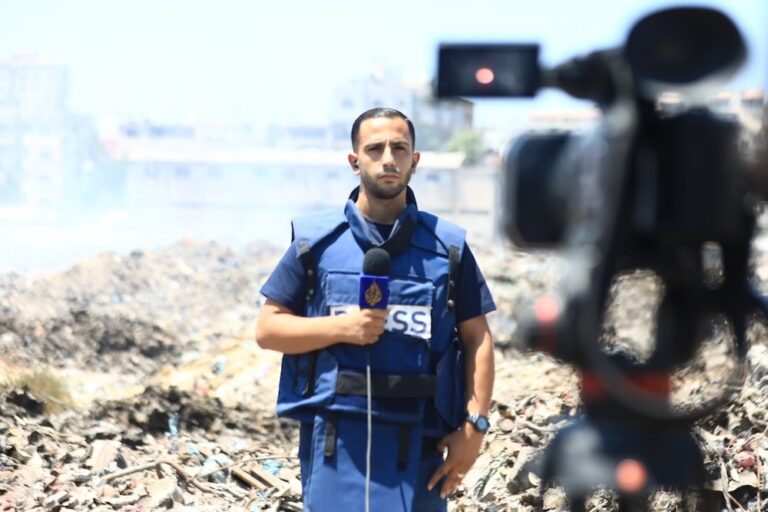(RSF/IFEX) – On 18 June 2003, on the occasion of Israeli Deputy Defence Minister Ze’ev Boim’s visit to France, RSF demanded that an Israeli military police investigation be launched into the circumstances surrounding the death of British documentary filmmaker James Miller on 2 May in Rafah, in the south of the Gaza Strip. “There are […]
(RSF/IFEX) – On 18 June 2003, on the occasion of Israeli Deputy Defence Minister Ze’ev Boim’s visit to France, RSF demanded that an Israeli military police investigation be launched into the circumstances surrounding the death of British documentary filmmaker James Miller on 2 May in Rafah, in the south of the Gaza Strip.
“There are never any proper investigations when journalists are killed by the Israeli army,” RSF Secretary-General Robert Ménard complained. “In Miller’s case, the army command has prepared a report that will be used by the military prosecutor, Menahem Finkelstein, to decide whether or not to order an investigation, which would be carried out by the military police.
“The facts of the case that have been established and the testimonies that have been gathered indicate a serious breach of the rules on opening fire,” Ménard said. “Since the Israeli Defence Forces pride themselves on their ethical behaviour, it should be unthinkable that there could be no police investigation into this tragedy.” Those responsible for firing the shots at Miller must be punished, he insisted.
The members of Miller’s crew and their two Palestinian assistants say the shots were fired by an Israeli soldier. Two videotapes confirm their account that a soldier opened fire from one of the Israeli armoured personnel carriers that were protecting bulldozers demolishing houses on the Egyptian border. The journalists were waving white flags and were wearing bulletproof vests marked “press” in order to identify themselves to the Israeli soldiers.
An autopsy on Miller’s body conducted at the Israeli national forensic institute on 8 May established that the Israeli-type bullet that struck the journalist entered his body from the front, thereby supporting the account of Miller’s crew.
The fact that he was hit head-on by an Israeli-type bullet contradicts the claim by Colonel Ari Levy, the deputy commander in the Gaza Strip, that Miller was shot from behind, a claim implying that he could have been killed by Palestinian gunfire. The army also suggested that Miller could have been killed in the crossfire between Palestinians and Israeli soldiers, or by a ricocheting bullet.
Miller, aged 34, married and the father of two children, was killed on his 16th day in the Gaza Strip, while making a documentary for Home Box Office on the conflict’s impact on Palestinian children and refugee camp dwellers in Rafah. He was the second journalist to be killed by Israeli gunfire since the start of 2003 and the fifth since the start of the second Intifada in September 2000.


